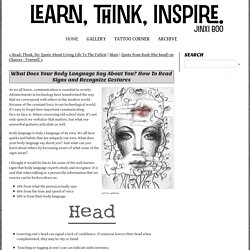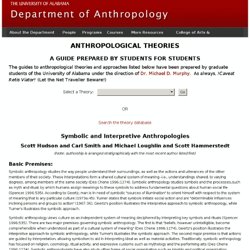

New Hypothesis for Human Evolution and Human Nature & Eberly College of... - StumbleUpon. Click on image for a high-resolution version. Domestic animals, like this water buffalo in Viet Nam, live intimately with humans and provide renewable resources to humans that communicate well with them. Photo by Greg Luna. 20 July 2010 — It's no secret to any dog-lover or cat-lover that humans have a special connection with animals. But in a new journal article and forthcoming book, paleoanthropologist Pat Shipman of Penn State University argues that this human-animal connection goes well beyond simple affection. Shipman proposes that the interdependency of ancestral humans with other animal species — "the animal connection" — played a crucial and beneficial role in human evolution over the last 2.6 million years. "Establishing an intimate connection to other animals is unique and universal to our species," said Shipman, a professor of biological anthropology.
Shipman suggests that the animal connection was prompted by the invention of stone tools 2.6-million years ago. What Does Your Body Language Say About You? How To Read Signs and Recognize Gestures - Jinxi Boo - Jinxi Boo. Art by LaetitziaAs we all know, communication is essential in society.

12.08.2009 - Social scientists build case for 'survival of the kindest' By Yasmin Anwar, Media Relations | 08 December 2009 BERKELEY — Researchers at the University of California, Berkeley, are challenging long-held beliefs that human beings are wired to be selfish.

In a wide range of studies, social scientists are amassing a growing body of evidence to show we are evolving to become more compassionate and collaborative in our quest to survive and thrive. Symbolic and Interpretive Anthropologies - Anthropological Theories - Department of Anthropology - The University of Alabama. The guides to anthropological theories and approaches listed below have been prepared by graduate students of the University of Alabama under the direction of Dr.

Michael D. Murphy. As always, ! Caveat Retis Viator! (Let the Net Traveller Beware!) Scott Hudson and Carl Smith and Michael Loughlin and Scott Hammerstedt (Note: authorship is arranged stratigraphically with the most recent author listed first) Basic Premises: Just A Thought. ← Previous Post Next Post → Just A Thought jon December 19, 2010 0 Other Stuff You Might Also Like» The 9 Most Unusual Models On The Planet The Greatest Resignation Letter Of All Time The 20 Most Horrifying Sports Faces How Dead Rock & Roll Legends Would Look Today The Most Awkward Baby Photos Ever Taken How Deaf People Think How Spam Came to Mean Junk Mail How to Remove Stripped Screws Origin of the Words Geek and Nerd 10 Interesting Celebrity Facts 10 Interesting Human Body Facts 8 Interesting Facts About Businesses Quick Facts Rage Comics This Day in History Leave A Response » Facts via TodayIFoundOut.com 23,870 SubscribersEmail marketing powered by MailChimp Interesting Facts on Facebook Recent Posts Stay Off The Grass May 2, 2012, No Comments Your Dog Is Gay May 2, 2012, No Comments Trained Monkey May 1, 2012, No Comments.

Lojong. Lojong (Tib.

བློ་སྦྱོང་,Wylie: blo sbyong) is a mind training practice in the Tibetan Buddhist tradition based on a set of aphorisms formulated in Tibet in the 12th century by Geshe Chekhawa. The practice involves refining and purifying one's motivations and attitudes. The fifty-nine or so slogans that form the root text of the mind training practice are designed as a set of antidotes to undesired mental habits that cause suffering. They contain both methods to expand one's viewpoint towards absolute bodhicitta, such as "Find the consciousness you had before you were born" and "Treat everything you perceive as a dream", and methods for relating to the world in a more constructive way with relative bodhicitta, such as "Be grateful to everyone" and "When everything goes wrong, treat disaster as a way to wake up.
" History of the practice[edit] ACTUAL AUSTRALIAN COURT DOCKET 12659. What They Used To Teach You At Stanford Business School - Market Movers. Relativity. Steps to help you thrive in hard times. Post-traumatic growth is the ability not only to bounce back from adversity but also to flourish.

Researchers have discovered that the key to post-traumatic growth is resilience Self-awareness helps you understand your habits of thinking, feeling and acting Relying on others is necessary, and it is certainly not a sign of weakness. An afternoon nap markedly boosts the brain’s learning capacity. If you see a student dozing in the library or a co-worker catching 40 winks in her cubicle, don’t roll your eyes.

New research from the University of California, Berkeley, shows that an hour’s nap can dramatically boost and restore your brain power. Indeed, the findings suggest that a biphasic sleep schedule not only refreshes the mind, but can make you smarter. Students who napped (green column) did markedly better in memorizing tests than their no-nap counterparts. (Courtesy of Matthew Walker) Conversely, the more hours we spend awake, the more sluggish our minds become, according to the findings. “Sleep not only rights the wrong of prolonged wakefulness but, at a neurocognitive level, it moves you beyond where you were before you took a nap,” said Matthew Walker, an assistant professor of psychology at UC Berkeley and the lead investigator of these studies. In the recent UC Berkeley sleep study, 39 healthy young adults were divided into two groups — nap and no-nap.